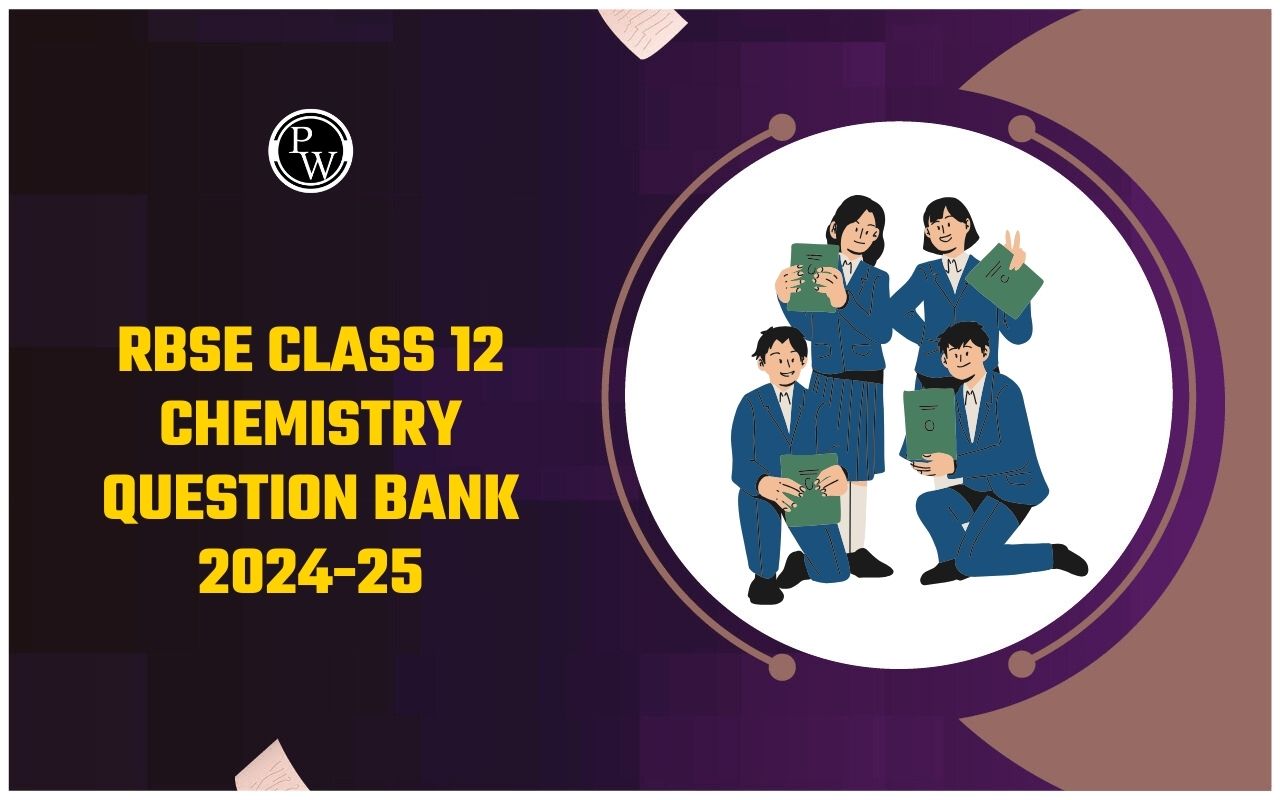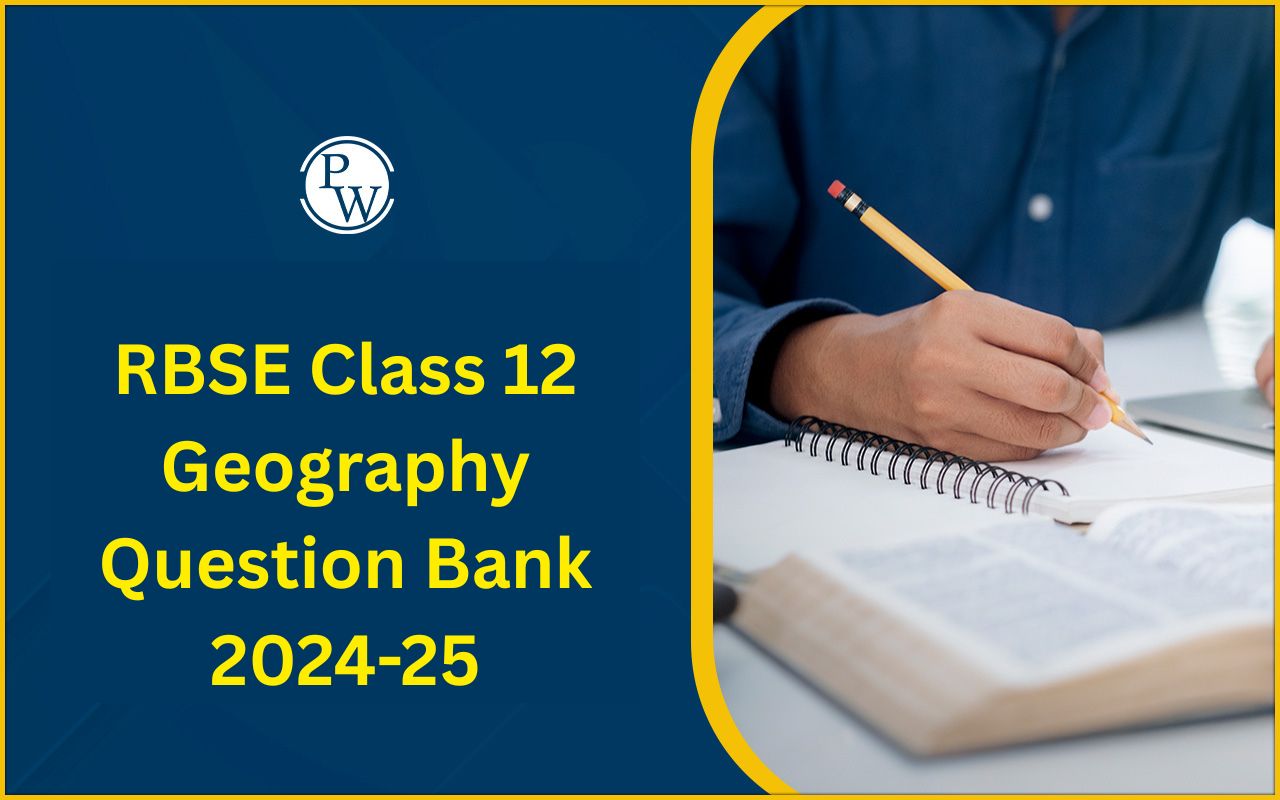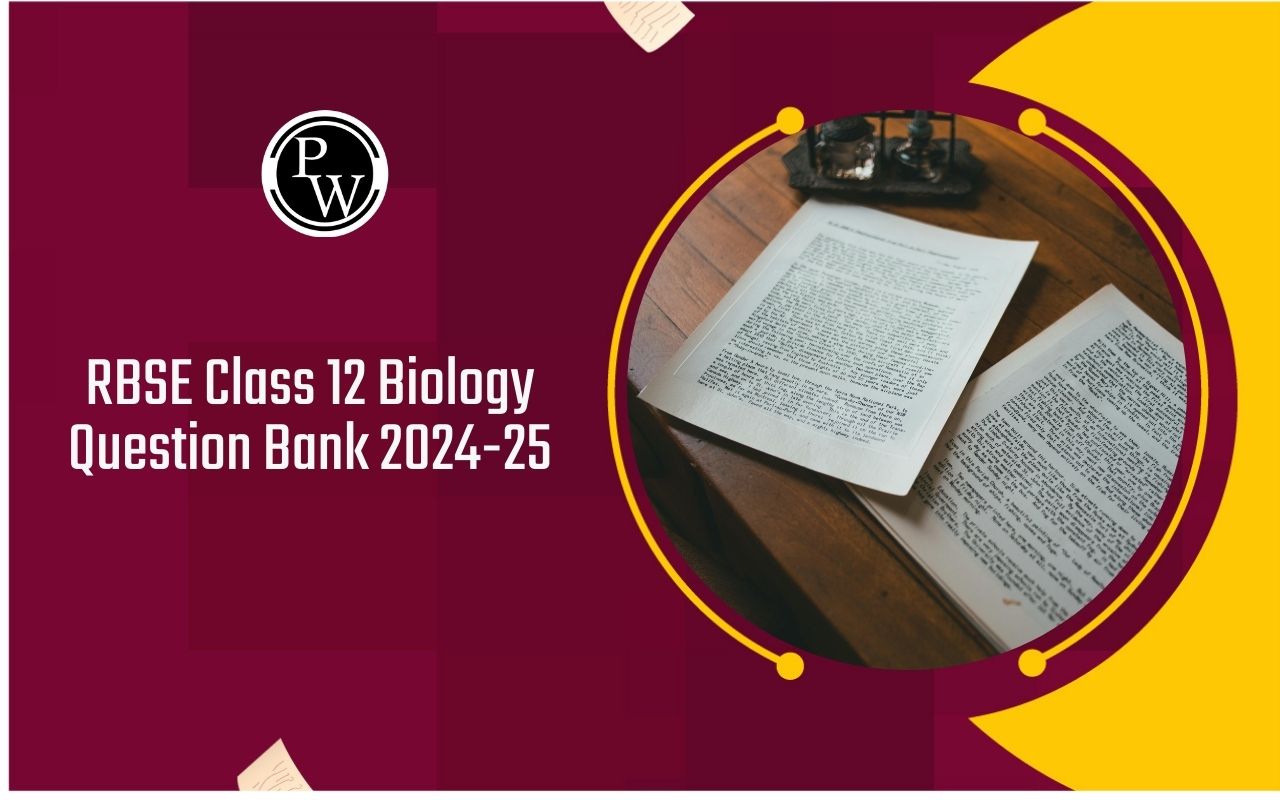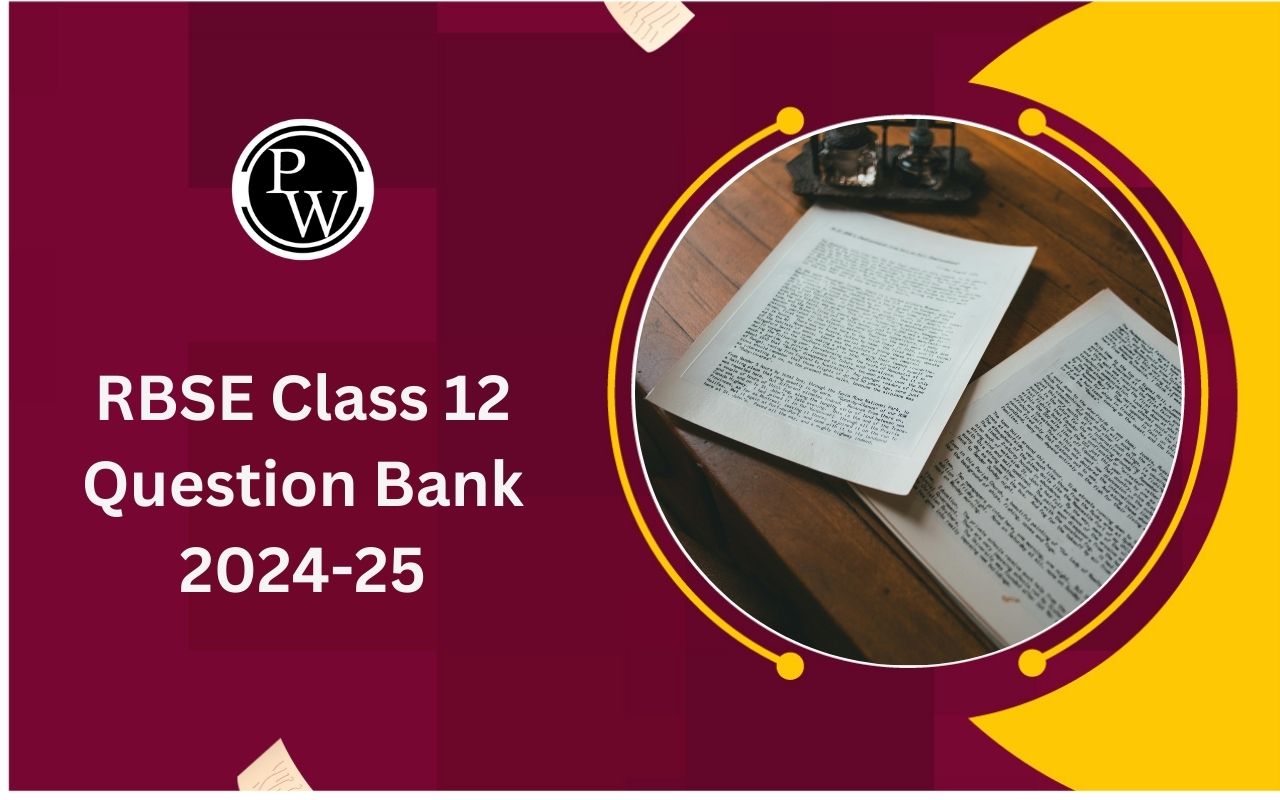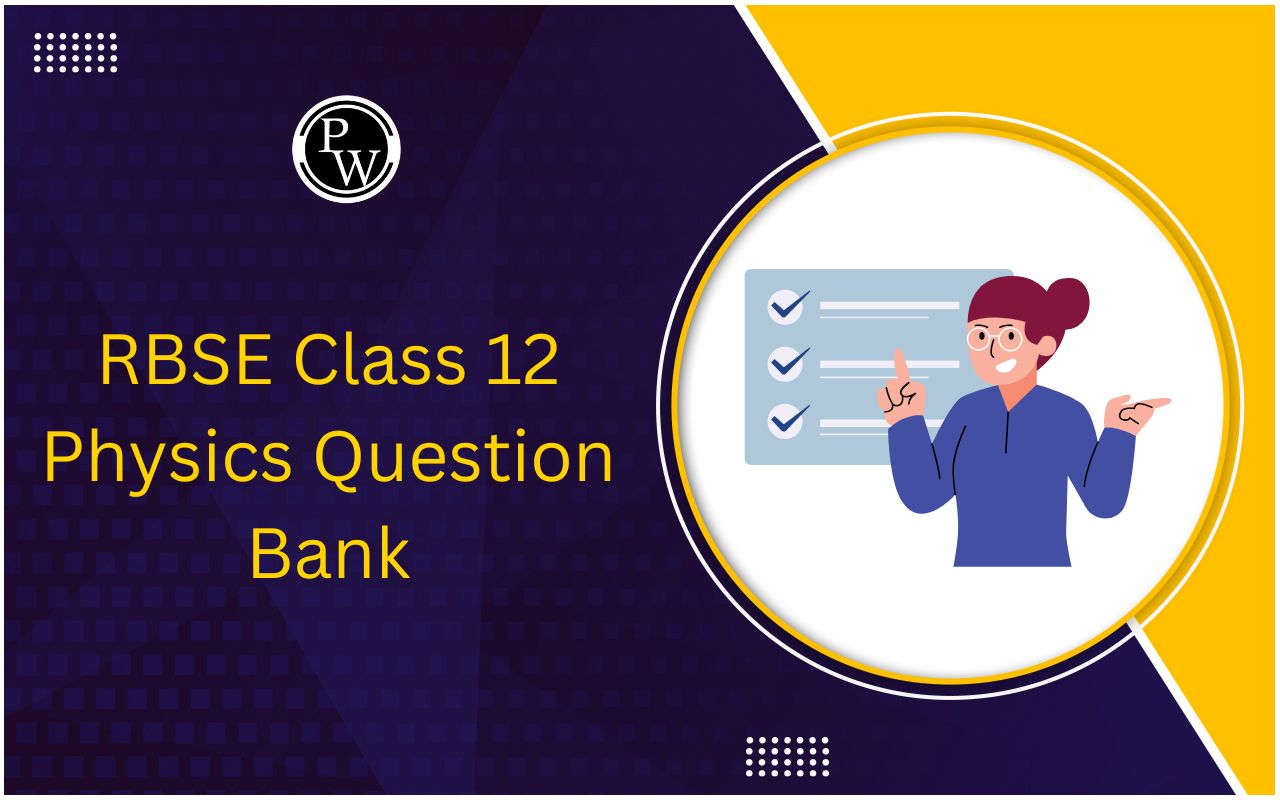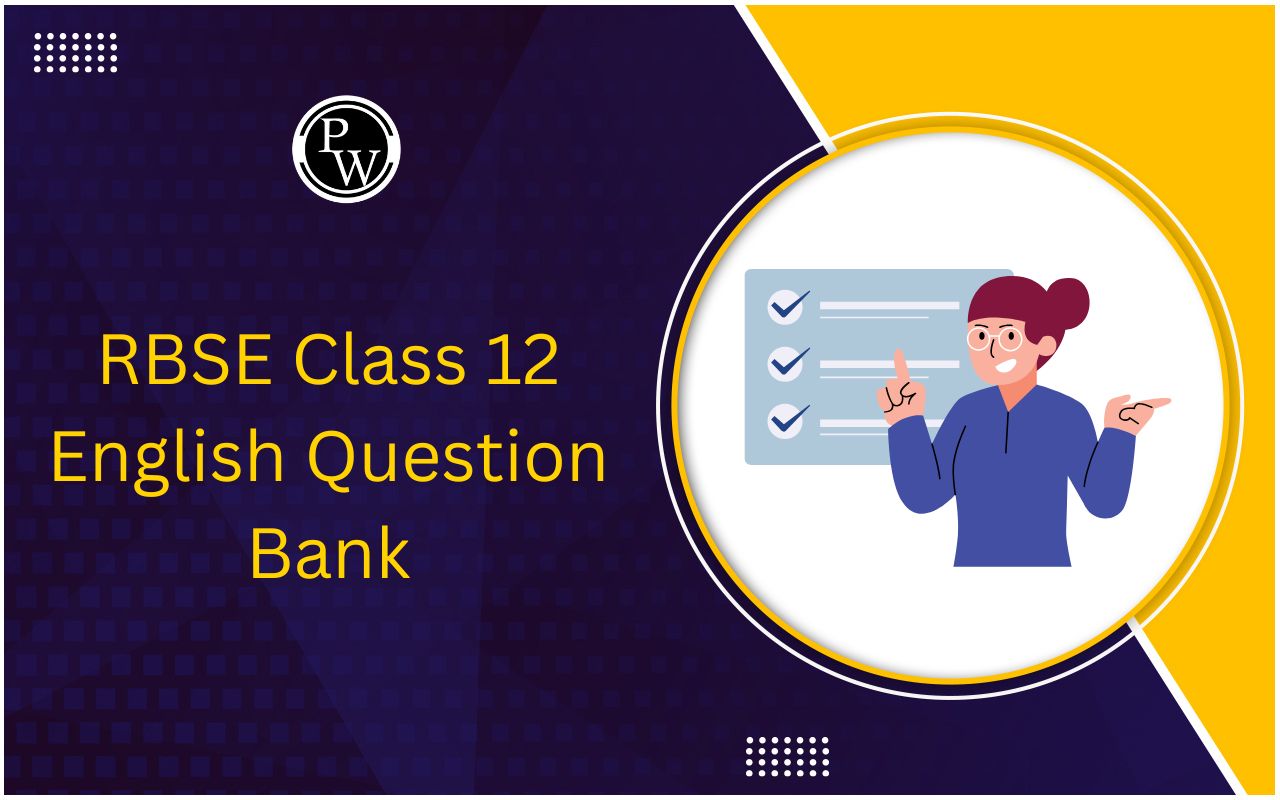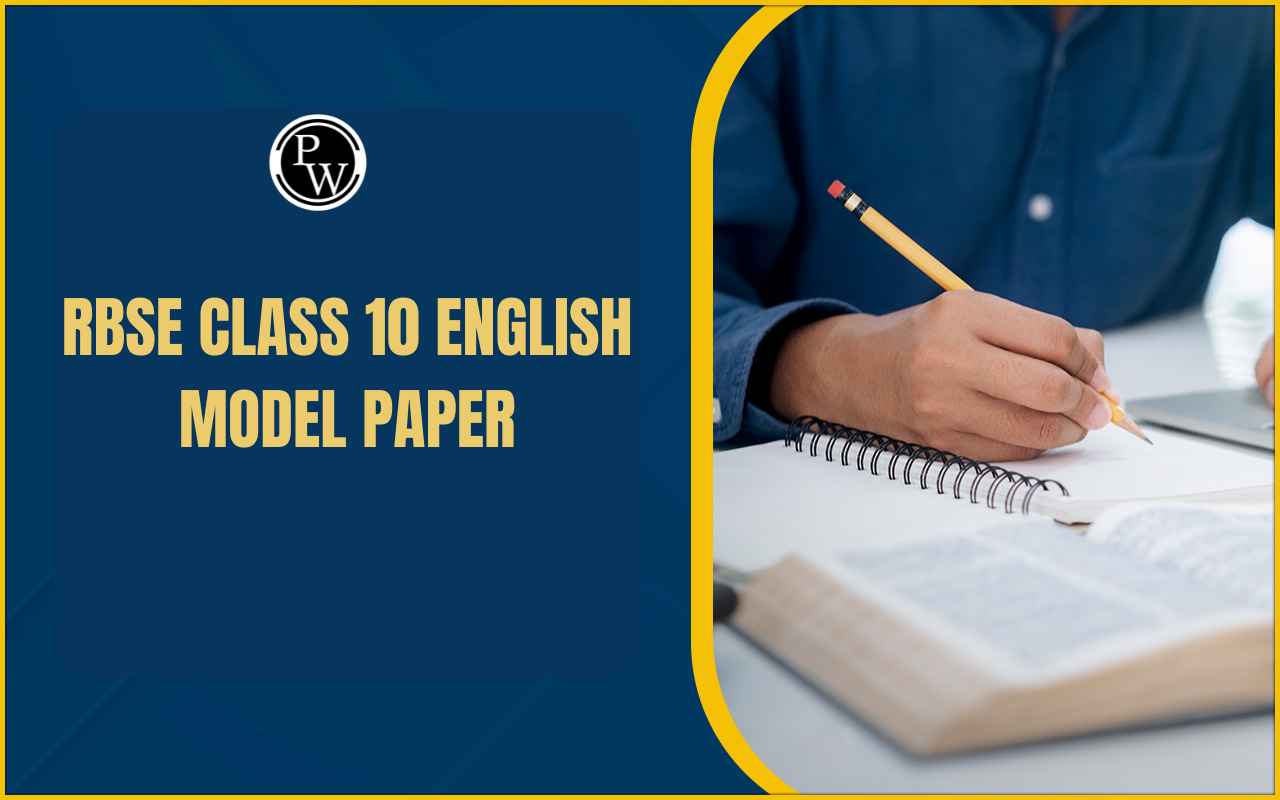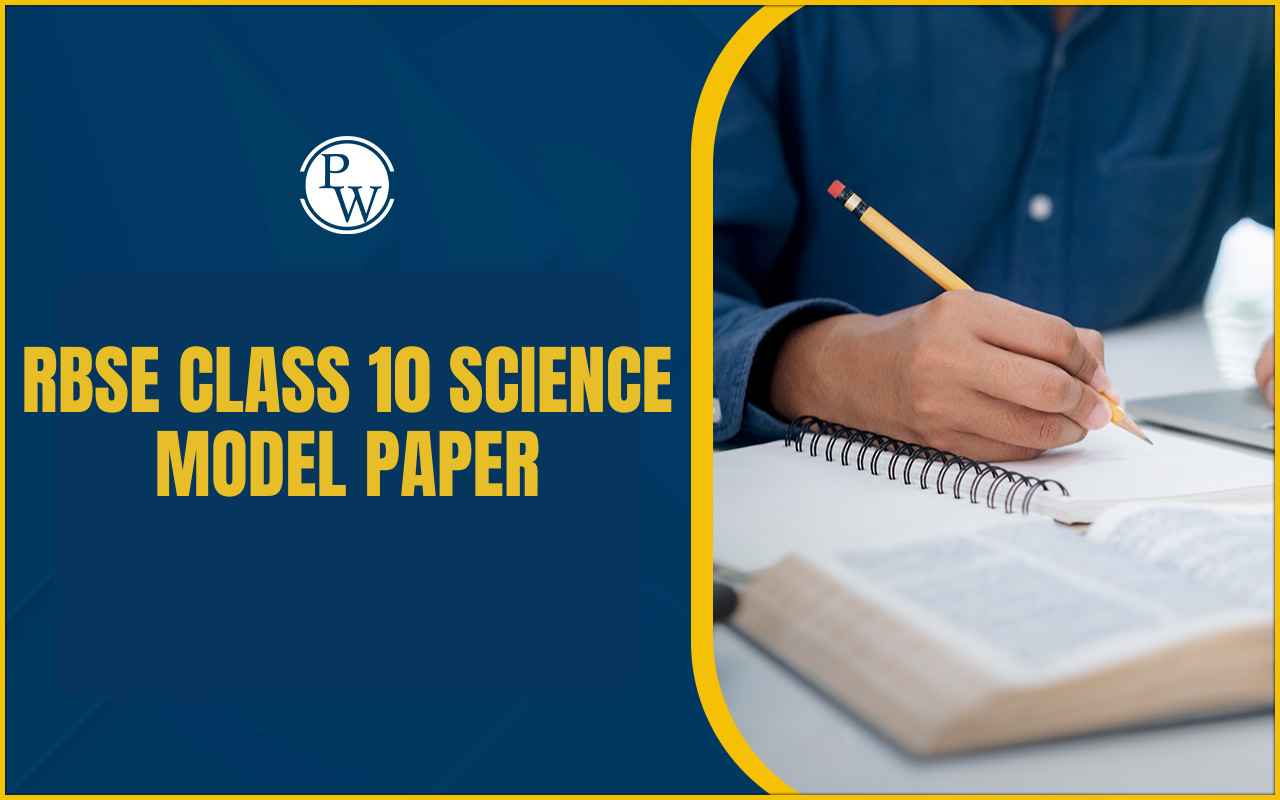
RBSE Class 10 Social Science Syllabus 2025-26: The Rajasthan Board has released the academic syllabus for the 2025-26 session. A combined PDF of all the subjects including the language papers i.e., Urdu, Gujarati, Punjabi is released on the official website of RBSE (rajeduboard.rajasthan.gov.in).
The RBSE follows the NCERT curriculum, preparing the students for higher education. The Social Science syllabus allows students to understand the historical and geographical contexts of our country while understanding the economic background. It aims to provide students with a strong foundation in the functioning of society.
RBSE Class 10 Social Science 2025-26 Syllabus Overview
The RBSE Class 10 Social Science syllabus 2026 provides students with a broad understanding of geographical concepts, historical events, economic processes and democratic structures. The syllabus allows students to understand the chapters and its sub topics to have a clear and structured approach to learning.
The Class 10 Social Science syllabus combines four main subjects– Geography, History, Economics, and Political Science. This syllabus helps students understand how the world has evolved and how societies function today.
The syllabus marks is divided into:
-
Written Exam: 80 marks
-
Internal Assessment: 20 marks
Here is the RBSE Class 10 Social Science 2025-26 Syllabus Overview:
|
RBSE Class 10 Social Science 2025-26 Syllabus Overview |
|
|
Sub Subjects |
Marks |
|
History |
20 |
|
Geography |
20 |
|
Economics |
20 |
|
Political Science |
20 |
|
Total Marks |
80 |
RBSE Class 10 Social Science 2025-26 Syllabus Marking Scheme
RBSE 10th Syllabus for Social Science 2025 includes a clear marking scheme to help students understand the importance of each unit and focus on the high-weightage topics. Through topics like nationalism, political institutions, and economic development, the syllabus helps students to understand every aspect of our country. The integration of history, civics, geography, and economics ensures that students develop an understanding of India and the world around them.
To perform well, students should not only cover the entire syllabus systematically but also pay attention to repeated topics from the previous years’ papers. Analyzing previous years’ question papers will allow you to understand the question format, identify frequently asked topics, and improve time management during the exam.
RBSE Class 10 History Syllabus
RBSE Class 10 includes History which includes a total of 3 units and it includes chapters like Rise of Nationalism in Europe and Age of Industrialisation. It allows students to know about the political background of the entire world. Here is the marking scheme for History:
|
RBSE Class 10 Social Science Syllabus 2026 Marking Scheme (History) |
||
|
Unit |
Chapter Name |
Marks |
|
Events and Processes |
Chapter 1: The Rise of Nationalism in Europe |
4 |
|
Chapter 2: Nationalism in India |
4 |
|
|
Livelihoods, Economies and Societies |
Chapter 3: The Making of a Global World |
4 |
|
Chapter 4: The Age of Industrialization |
4 |
|
|
Everyday Life, Culture and Politics |
Chapter 5: Print Culture and the Modern World |
4 |
RBSE Class 10 Geography Syllabus
The Geography part of Class 10 Social Science includes seven chapters and carries a certain weightage of marks. Some topics like Minerals and Energy Resources and Resources and Development carry more marks in the exams, hence making it more important for students to prioritize these topics. It's important to go through maps, diagrams, and examples to understand the concepts better. Here is the RBSE Class 10 Social Science Syllabus 2026 Marking Scheme for Geography:
|
RBSE Class 10 Social Science Syllabus 2026 Marking Scheme (Geography) |
|
|
Chapter Names |
Marks |
|
Resources and Development |
3 |
|
Forest and Wildlife Resources |
2 |
|
Water Resources |
3 |
|
Agriculture |
3 |
|
Minerals and Energy Resources |
4 |
|
Manufacturing Industries |
2 |
|
Lifeline of National Economy |
3 |
RBSE Class 10 Political ScienceSyllabus
The Political Science section of Class 10 Social Science covers key aspects of how democracy functions in India. Chapters like Political Parties and Power Sharing carry more marks and often appear in the form of short and long answer questions. Students should focus on understanding examples and recent political developments. Here is the marking scheme of all the chapters included in the syllabus:
|
RBSE Class 10 Social Science Syllabus 2026 Marking Scheme (Political Science) |
|
|
Chapter Name |
Marks |
|
Power Sharing |
4 |
|
Federalism |
4 |
|
Gender, Religion and Caste |
4 |
|
Political Parties |
5 |
|
Outcomes of Democracy |
3 |
RBSE Class 10 Economics Syllabus
The Economics section helps students understand how the Indian economy works in daily life. Chapters like Sectors of the Indian Economy and Money and Credit carry the highest marks, so they should be revised thoroughly. Real-life examples, flowcharts, and case studies make answers more effective. Practicing previous year questions can also help in scoring better in this section.
|
RBSE Class 10 Social Science Syllabus 2026 Marking Scheme (Economics) |
|
|
Chapter Name |
Marks |
|
Development |
3 |
|
Sectors of the Indian Economy |
5 |
|
Money and Credit |
5 |
|
Globalization and the Indian Economy |
5 |
|
Consumer Rights |
2 |
The remaining marks are further divided into 10 marks for internal assesment, oral test and notebook for 1 mark each, attendance for 5 marks, and project for 3 marks.
RBSE Class 10 Social Science 2025-26 Detailed Syllabus
Here is the RBSE Class 10 Social Science 2025-26 detailed syllabus for all the disciplines included in the subject:
I: History
Unit 1: Events and Processes
A-The Rise of Nationalism in Europe: The French Revolution and the Idea of the Nation, The Making of Nationalism in Europe – The Aristorcracy and the New Middile Class, Liberal Nationalism, A New Conservatism after 1815, The Revolutionaries, The Age of Revolutions: 1830-1848 – The Romantic Imagination and National Feeling, Hunger, Hardship and Popular Revolt, 1848 : The Revolution of the Liberals, The Making of Germany and Italy- German Army, Italy Unified, The strange Case of Britain, Visualising the Nation, Nationalism and Imperialism.
B- Nationalism in India: The First World War, Khilafat and Non – Cooperation – The Idea of Satyagraha, The Rowlatt Act, Non- cooperation movement, Differing Strands within the Movement – The Movement in the Towns, Rebellion in the Countryside, Swaraj in the Plantations, Towards Civil Disobedience – The Salt March and the Civil Disobedience Movement, Participation of People in the Movement, The Limits of Civil Disobedience, The Sense of Collective Belonging – Quit India Movement.
Unit 2: Livelihoods, Economies and Societies
A- The Making of a Global World: The Pre-modern world – Silk Routes Link the World, Food Travels: Spaghetti and Potato, Conquest, Disease and Trade, The Nineteenth Century (1815-1914) – A World Economy Takes Shape, Role of Technology, Late nineteenth-century Colonialism, Rinderpest,or the Cattle Plague,Indentured Labour Migration From India, Indian Entrepreneurs Abroad, Indian Trade, Colonialism and the Global System, The Inter-war Economy – Wartime Transformations, Post-war Recovery, Rise of Mass Production and Consumption, The Great Depression,India and the Great Depression, Rebuilding a World Economy: The Post-War Era – Post- war Settlement and the bretton Woods Institutions, The Early post-war Years, Decolonisation and Independence, End of Bretton Woods and the Beginning of Globalisation.
B- The Age of Industrialisation: Before the Industrial Revolution – The Coming Up of the Factory, The Pace of Industrial Change,Hand Labour and Steam Power – Life of the Workers, Industrialisation in the colonies - The Age of Indian Textiles, The condition of the weavers, Manchester Comes to India, Factories Come Up – The Early Entrepreneurs, Arrival of workesrs from different places, The Peculiarities of Industrial Growth – Small-scale Industries Predominate, Market for Goods.
Unit 3: Every day Life, Culture and Politics
A- Print Culture and the Modern World: The First Printed Books – Print in Japan, Print Comes to Europe – Gutenberg and the Printing Press, The Print Revolution and its Impact – A New Reading Public, Religious Debates and the Fear of Print, Print and Dissent, The Reading Mania – Tremble, therefore, tyrants of the world, Print Culture and the French Revolution, The Nineteenth Century – Children, Women and Worklers, Further Innovations, India and the World of Print – Manuscipts Before the Age of Print, Print Comes to India, Religious Reform and Public Debates, New Forms of Publication – Women and Print, Print and the Poor People, Print and Censorship.
II: Geography
1- RESOURCES AND DEVELOPMENT: Classification of Resources, Development of Resources, Resources Planning in India, Land Resources, Land Utilisation, Land use pattern in India, Land degradation and conservation measures, Soil as a resource, Classification of Soils, Soils Erosion and Soil Conservation.
2- FOREST AND WILDLIFE RESOURCES: Flora and Fauna in India, Conservation of forest and Wildlife in India, Types and Distribution of forest and wildlife Resources, Community and Conservation.
3- WATER RESOURCES: Water Scarcity and the need of water conservation and management, Multi-Purpose, River Project and Integrated water resources management, Rain water Harvesting.
4- AGRICULTURE: Types of Farming – Primitive subsistence Farming, Intensive subsistence Farming, Commercial Farming, Cropping Pattern, Major Crops- Rice, Wheat, Millets- Bajra, Maize, Pulses, Food Crops other than Grains, Horticulture, Non- Food Crops, Fibre Crops, Technological and Institutional Reforms.
5- MINERALS AND ENERGY RESOURCES: Meaning of Minerals, Mode of Occurrence of Minerals, Ferrous and non-ferrous Minerals, NonMetallic minerals, Rock minerals, Conservation of Minerals Energy Resources-conventional And non-conventional sources, conservation of energy resources.
6- MANUFACTURING INDUSTRIES: Importance of Manufacturing, Classification of Industries, Industrial Pollution and Environmental Degradation, Control of Environmental Degradation
7- LIFELINE OF NATIONAL ECONOMY: Transport: Roadways, Railways, Pipelines, Waterways and Major Sea Ports, Airways, Communication, International trade, Tourism-as a trade.
III: Political Science
1- POWER SHARING: Belgium and Sri lanka, Majoritarianism in Sri Lanka Accommodation in Belgium, Need of Power Sharing, Forms of power-sharing.
2- FEDERALISM: Federalism, Federal System in India, Working Procedure of the Federalism, Linguistic States, Language Policy, Centre-State Reactions, Decentralization In India.
3- GENDER, RELIGION AND CASTE: Gender and Politics- Feminist movements, Woman Political Representation, Religion, Communalism and Politics Caste and Politics, Social and Religious Diversity of India, Caste Inequality.
4- POLITICAL PARTIES: Importance of Political Parties,Function of Political Parties, Type of political parties, Popular Participation in Political Parties, National Parties, Dimensions of change in Parties.
5- OUTCOMES OF DEMOCRACY: Evaluation of the results of democracy, Accountable, Responsive and Legitimate Government, Economic growth and development, Economic outcomes of democracy, reduction of inequality and poverty, Accommodation of social diversity, Dignity and freedom of the citizens.
IV: Economics
1- DEVELOPMENT: Development Promises-Different People, Different goals, Income and other Goals, National Development, Comparison of different countries and states, Income and other criteria, Public facilities, Human Development Report, sustainability of Development.
2- SECTORS OF THE INDIAN ECONOMY: Sectors of Economic activities, Comparing the three sectors- Counting the various goods and services, Historical Change in Sectors, Primary, Secondary and Tertiary in India, Create More Employment- MGNREGA 2005, Divisions of sectors as organised and unorganised, Sectors in term of ownership: Public and Private Sectors.
3- MONEY AND CREDIT: Money as medium of exchange, Modern forms of money- Currency, Depostis with banks, Loan activities of Banks, Two different credit situations, Terms of Credit, Formal Sector credit in India, Comparative study of formal and informal Credit, Self help groups for the Poor
4- GLOBLISATION AND THE INDIAN ECONOMY: Production across countries, Interlinking production across countries, Foreign trade and integration of markets, Meaning of Globalisation - Factors that have enabled Globalisation, Liberlisatian of foreigm trade and foreign investment policy, World Trade Organization, Impact of Globalisation in India, The Struggle for a fair Globalisation.
5- CONSUMER RIGHTS: The consumer in the market place, Consumer movement, Consumer Rights-Right to Safty, Right to Information,Right to Choose, Right to Seek redressal, Learning to become well informed consumers, Efforts to take the Consumer Movement Forward.
RBSE Class 10 Social Science 2025-26 Syllabus Recommended Books
For the RBSE Class 10 Social Science 2025–26 syllabus, students should study from the official Rajasthan Board textbooks. These books cover the latest syllabus and cover all four subjects: History, Geography, Political Science, and Economics in a structured manner. Here are the names of the books mentioned in the syllabus:
-
For History, India and the Contemporary World Part-2 NCERT's Book Published under Copyright.
-
For Geography, Contemporary India-II (Geography) NCERT’s Book published under copyright.
-
For Political Science, Democratic Politics-II NCERT's Book Published under Copyright.
-
For Economics, Understanding Economic Development NCERT's Book Published under Copyright.
RBSE Class 10 Social Science 2026 Syllabus Download PDF
RBSE Class 10 Social Science 2025 Syllabus PDF gives a brief overview of the exam pattern, chapters and sub-topics to be covered to score well in the exams. It helps students plan their studies better by highlighting the important areas to focus on in each subject—History, Geography, Political Science, and Economics. You can download the syllabus in PDF format from here:
RBSE Class 10 Social Science Syllabus 2025-26
Study without using the internet
RBSE Class 10 Social Science Syllabus 2026 Benefits
-
The RBSE Social Science syllabus combines History, Geography, Political Science, and Economics into one subject. This gives students a complete view of society—how it developed, how it functions today, and how policies and systems work.
-
The topics included in the syllabus related to Indian economy, democracy, political structures, are essential for state and national competitive exams. This will help students understand difficult concepts later on.
-
Through subjects like Geography and Economics, students will learn to read graphs, and charts. These skills develop analytical thinking and are especially useful for higher studies in economics, geography, civil services, or environmental science.
-
The RBSE Class 10 Social Science syllabus 2026 creates a base for Class 11th streams like Humanities, Political Science, Sociology, History, or Geography in college.
-
Social Science brings together Science and Society, History and Current Events. This helps students connect the dots across subjects, improving overall academic performance and reasoning skills.
RBSE Class 10 Social Science Syllabus 2025-26 FAQs
What is the passing marks out of 80 in RBSE Class 10?
What are the subject groups in 10th class Rajasthan board?
How to score full in social science class 10?
Which chapters are removed from social science class 10 RBSE?

